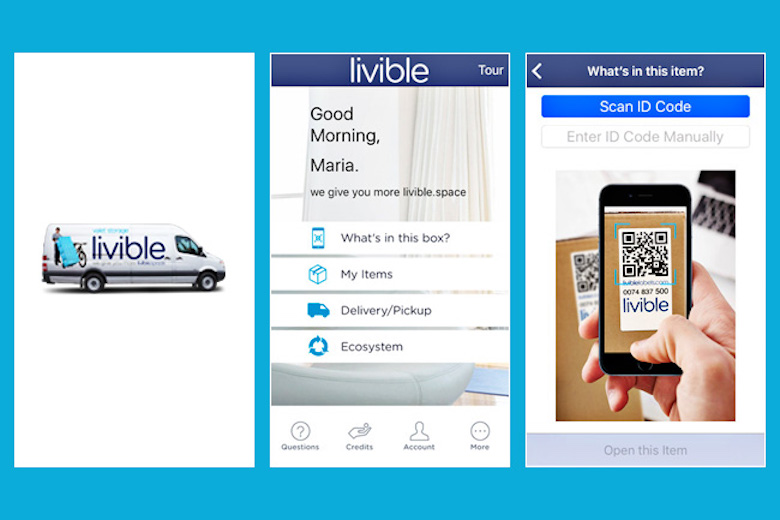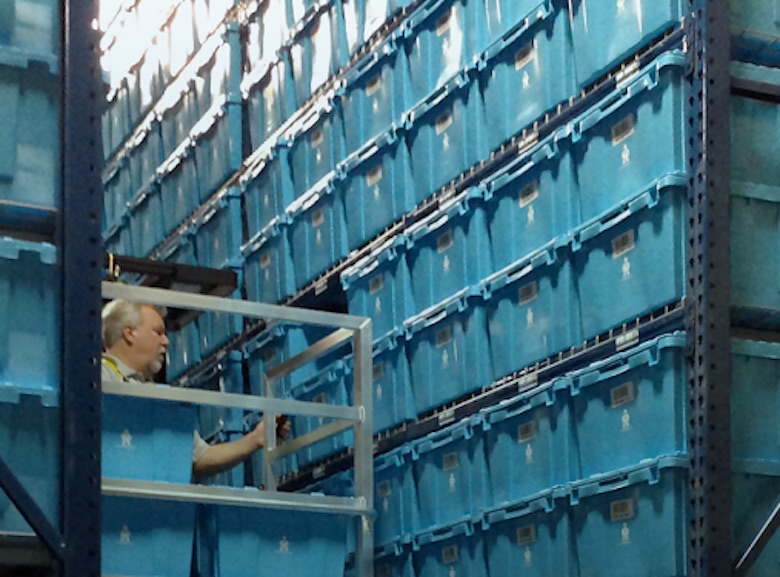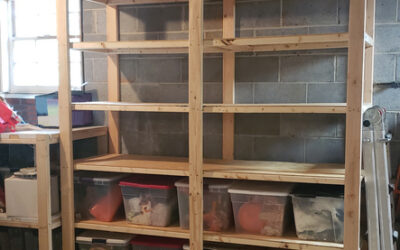Customer demand drove Terry Drayton to change the name of his pick-up-and-delivery storage company from “Storrage” to “Livible” about one year ago.
But over the last three years since the company started, a lot more has changed besides the name.
“Customers asked us to help them with much more than storage, so Storrage wasn’t a good fit anymore,” said Drayton, founder/CEO and a Seattle-based serial entrepreneur perhaps best known for founding HomeGrocer.com. “We needed a brand that works for all the ecosystem services – donations, moving, sharing, selling and renting.”
Livible operates in Seattle and Portland, OR, with 10 employees and four vehicles, and Drayton plans a national rollout in the top 40 U.S. metropolitan areas in 2017. He’s in the midst of a venture financing round, which has raised $4 million and aims to top out between $10 million and $20 million.
Changing the name
Like other burgeoning full-service storage providers, Drayton’s firm doesn’t rent out storage units. Instead, Livible stores customers’ belongings for them at secure facilities, gives them an app to track what they have in storage and will pick up or deliver items on demand.
Drayton, 56, realized he needed a better company name than Storrage to represent the company’s growing list of services. He and his wife, Beth, created “Livible.” He tested it on customers and prospects, and they favored “Livible” six to one.
Those odd spellings? They’re hip these days, and also enable Drayton to own the trademarks.
Way of the future
Meanwhile, Drayton –- founder of such companies as Votocracy LLC, Rainier Software Inc. and Arena Group Inc., and a fan of customer logistics — makes a surprising prediction about the future of the self-storage industry.
“I’ve been pretty good at seeing what’s coming,” he said. “Long term, we think on-demand will completely supplant self-storage, just like mobile phones replaced pay phones, and Netflix and Xfinity replaced Blockbuster.
“Customers see that it’s easy and friendly and less expensive. We think it’ll become, overwhelmingly, the way for the (self-storage) business to go.” Drayton said.
Target customers
Drayton won’t reveal the total number of Livible customers, but said there are “thousands” in the two cities. Many are baby boomers that are looking to downsize, people that need to store items to enable their real estate agent to put on a staging, or millennials that not only don’t own a car, but may never have learned to drive. Apartment and townhome residents are customers, too.
“Half of our urban customers live in the downtown core and don’t have vehicles,” Drayton said. “Others might have a car, but they don’t want to use it; they don’t want to do the work.”
Drayton expects to complete the funding round this fall and said he has, combined, raised between $500 million and $600 million for his previous companies. Jeff Wilke, a CEO at Amazon who ranks second only to Jeff Bezos, is among the current investors.
Pricing matters
Drayton considered franchising when Storrage was around. But he won’t franchise Livible locations.
Unlike Storrage, Livible will handle larger items. “Originally, we were selling only boxes, and would take a bike or skis, but not furniture or appliances,” Drayton said. “But now we’re picking up everything.”
One differentiation from self-storage, where customers pay a standard price per unit size no matter how much space they really need, is that Livible charges people only for the space used. “We give you exactly the space you need,” Drayton said. “You can’t do that in the self-storage world.”
Pickup or delivery is $9 plus a per-item handling fee of $1 to $9, depending on its size and weight.
Customers that store 99 cubic feet or less are billed $1 per item. For 100 cubic feet or more, it’s billed by the cubic foot. For example, 79 cents per cubic foot for 100 to 199 items (www.livible.com/pricing).
Give the customer what they want
Customer demand also has Livible offering additional services, such as donating, sharing, selling and tossing out of belongings. The company may add renting and swapping later on.
For example, Livible has a national partnership with Value Village for the donated items, and will handle the donation for free.
Want to share your camping gear with friends or family? Livible will handle that, as well as sell the items you designate.
“We’ll go down the path of adding services,” Drayton said. “The very first customer we picked up from had stuff to donate, and would we take it for them. The obvious answer is always ‘Yes.’”










